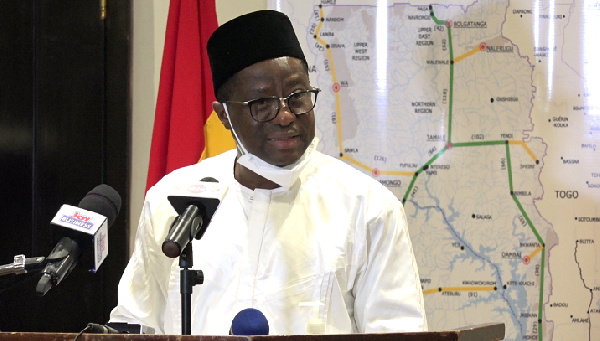
Suspension of solar net metering policy disappointing - AGSI

The Association of Ghana Solar Industries (AGSI) has blamed the Electricity Company of Ghana (ECG) over the suspension of the Solar Net Metering Policy of the Energy Commission.
According to the Association, the suspension of the Net Metering Policy is causing undue delay to a policy meant to bring relief to consumers in terms of cost.
This is because the ECG have pushed for the Energy Commission to put on hold the net metering policy to allow for some concession to be made by those whose solar power to be stored by the utility provider using a ratio formula.
Net Metering is a regulatory model that allow electricity producers to “export” surplus to the national grid and use the “exported” electricity to balance out the deficit, allowing households/organizations to meet their own electricity demand with their own production and is particularly important with wind and solar.
Speaking to JoyBusiness the Secretary of the Association Kwasi Agyenim Boateng described the development as disappointing. He questioned if the power provider was not aware of the implications of the policy before signing off on it.
“Energy Commission put up a policy with regards to the net metering scheme but till date, it has not seen the light of day. This is because ECG is said to have raised questions with they being used to store unused power by domestic and commercial private users.
This is disappointing at this time and the country will have to move away from delays in implementing very good policies that will allow Ghana to thrive with regards to the energy sector. Did the ECG say they were not aware that consumers were likely to jump on such a good policy and have to wait till implementation time to raise objections to it?” he said.
Energy Commission, an agency under the Ministry of Energy over the years have advised organisations and domestic users of power to shift to the solar net metering system, to save them from entering the higher consumption rate bracket.
According to the commission, net metering was a mechanism that fed the national grid with surplus solar energy from households and businesses, while assisting them (households) to save cost, and urged consumers to take advantage of it.
Mr Agyenim Boateng also added that “we must remember that, such inconsistencies send wrong signals to the market.”
Meanwhile, the government in 2018 is expected to launch its MDA Solar Rooftop Programme by installing around 200 MW of rooftop solar capacity throughout the country.
The program, which was redubbed “government Goes Solar”, will ensure that government institutions switch to renewable energy to reduce government’s expenditure on utilities.
Ministry of Energy is said to be determined to leverage the benefits of solar energy and expand its usage across the country because switching to solar power will mitigate the power crisis the country has been facing for the past four years.
According to the latest statistics available, Ghana had 23.22 MW of grid-connected PV capacity as of the end of the first half of 2016. Most of this capacity comes from a 20 MW PV plant completed by the independent power producer BXC Ghana Ltd., a subsidiary of China-based industrial conglomerate Beijing Fuxing Xiao-Cheng Electronic, in April 2016.
Ghana, whose National Energy Policy is targeting 10% coverage of electricity production with renewables by 2020, is in desperate need of increased electricity capacity. Approximately 30% of its population has no access to power.






